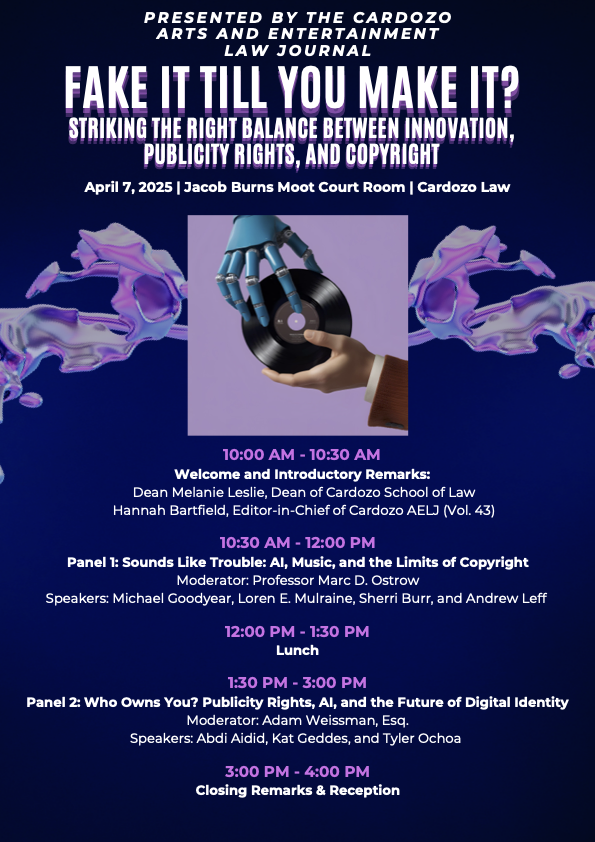Author:
ma*************@la*.edu
“>Marc Pellegrino, J.D Candidate, Class of 2014, Benjamin N. Cardozo School of Law
The line is increasingly blurred between what content is or is not endorsed by a particular entity online. Social marketing outlets like Facebook and Twitter allow bloggers, celebrities and companies to communicate with their audience more intimately and in turn, content is shared and disseminated seamlessly among Internet users. Cardozo School of Law’s Intellectual Property Law and Cyberlaw Societies brought a panel together last month to discuss the ways in which businesses that interact with the vast array of these social networking outlets can effectively comply with Federal Trade Commission (FTC) disclosure regulations in light of the increase in sponsored content online. Robert DeBrauwere, co-chair of the Digital Media Group at Pryor Cashman LLP, and former Cardozo Arts & Entertainment Law Journal editor, moderated the discussion.
The FTC views the reasonable consumer as having a “healthy skepticism” toward conventional advertisements, said Leonard Gordon, partner at Venable LLP and former Regional Director of the FTC’s Northeast Regional Office. On the other hand, with the Internet facilitating the emergence of “consumer to consumer” marketing, it is harder and harder to determine the relationship between the author of the blog, tweet or product review and the underlying “product,” said Gordon. As a result, the 2009 revision of the FTC Guidestates that, where it is not apparent that there is a “material connection” between the endorsee and product, an endorsee who is compensated in some way by the product must “conspicuously disclose” such information.
(Click here to read the rest.)
The views expressed here are exclusively of the author and do not represent agreement or endorsement by the Cardozo Arts & Entertainment Law Journal, Benjamin N. Cardozo School of Law, or Yeshiva University.



